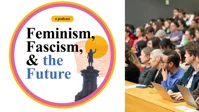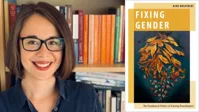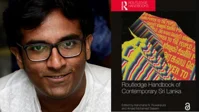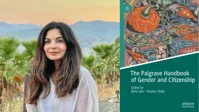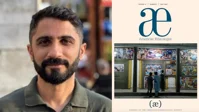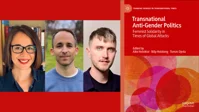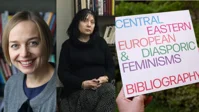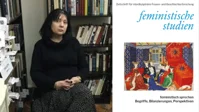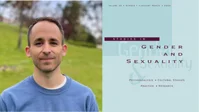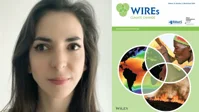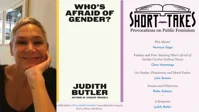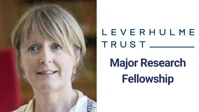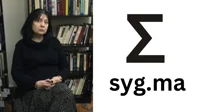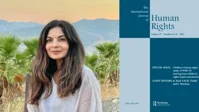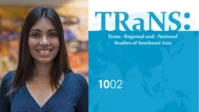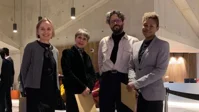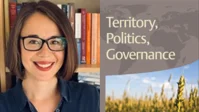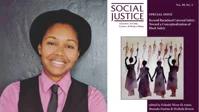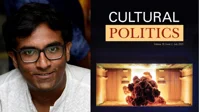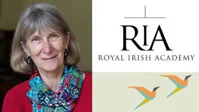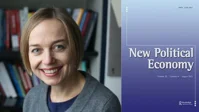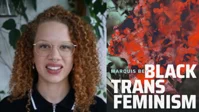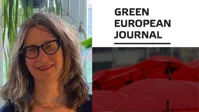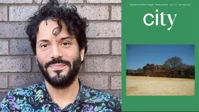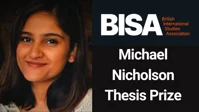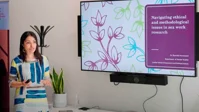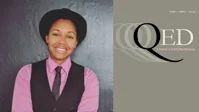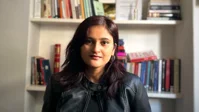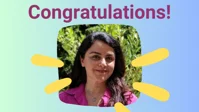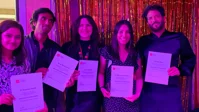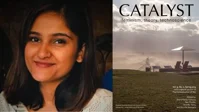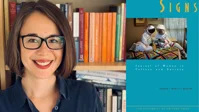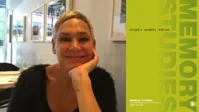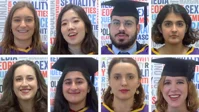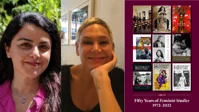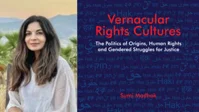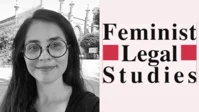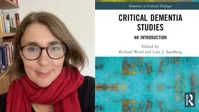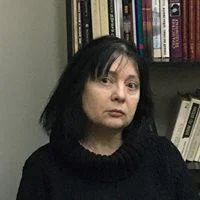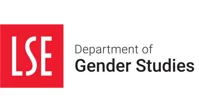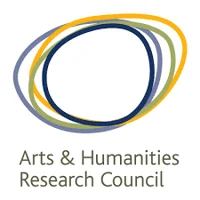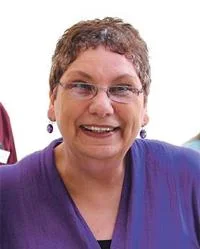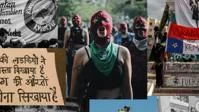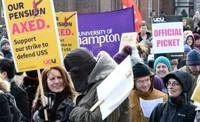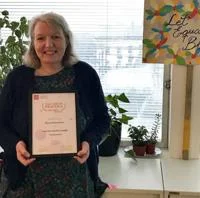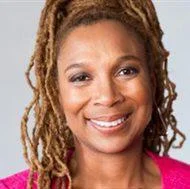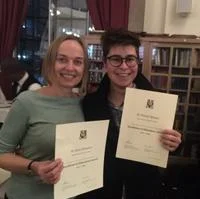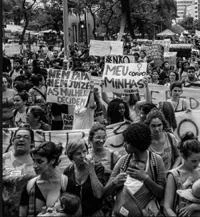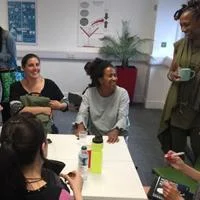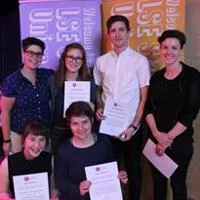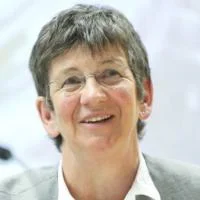News

The latest from the Department of Gender Studies
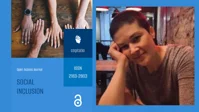
Dr Zuzana Dančíková published in Social Inclusion
Dr Dančíková's article Involved Fatherhood in Slovakia? A Multi‐Dimensional Picture Painted Using Multiple Methods is available to read here.

Dr Zuzana Dančíková and Magda Muter published in Frontiers in Sociology
The article Subtle discrimination of fathers in relation to leave-taking: a comparative study of Slovakia and Poland is available to read here.
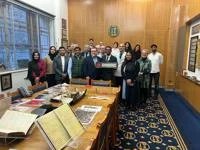
Dr Rohit Dasgupta receives Freedom of the City of London
Dr Rohit Dasgupta has received the Freedom of the City of London. The Freedom of the City of London dates back to the 13th century, and recognised outstanding contributions to civic society.

Department of Gender Studies is part of the LSE Excellence Scholarship
We're delighted to announce that the Department of Gender Studies is part of the LSE Excellence Scholarship. This means that applicants to our MSc programmes are eligible for consideration.
LSE Excellence Scholarships are prestigious awards for exceptional Postgraduate Taught students joining LSE in 2026. These scholarships recognise applicants who demonstrate outstanding academic ability and strong potential to thrive in their chosen programme.
You can find our more about the LSE Excellence Scholarship here.
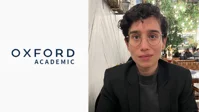
Dr R. Sanchez-Rivera published in Oxford Intersections: Racism by Context
Dr Sanchez-Rivera's article Building the “Fitter” Future: Eugenics, Tech-Capitalism is available to read here.
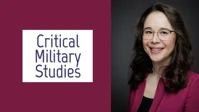
Dr Aiko Holvikivi published in Critical Military Studies
Dr Holvikivi's article An ‘ironic compromise’: feminist research in military institutions is available to read here.
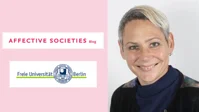
Prof Clare Hemmings interviewed for Affective Societies blog
The interview titled After Affects, Future Feelings – Clare Hemmings in Conversation can be found here.
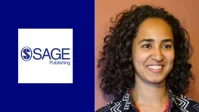
Dr Asiya Islam published in Critical Sociology journal
Dr Islam's article A ‘working lives’ approach to platform work: Accounting for informality, social reproduction, and gender norms is available to read here.
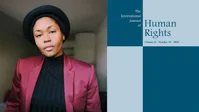
Dr SM Rodriguez published in The International Journal of Human Rights
Dr Rodriguez's article Respatialising the global imaginary of gay rights: resisting Africana epistemicide and forging Solidaristic Imaginaries is avaible to read here.
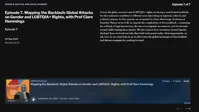
Prof Clare Hemmings featured in the Backlash Unfiltered: Pushing Forward for Equality in Times of Change podcast series by UNRISD
Through in-depth conversations with leading scholars, activists, and policymakers, this series explores the rise of anti-gender movements, their impact on social development, and the historical and geopolitical forces that sustain them. Hear from Clare in the episode 'Mapping the Backlash: Global Attacks on Gender and LGBTQIA+ Rights'. Listen to the epsiode here.
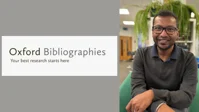
Dr Rohit K Dasgupta publishes Oxford Bibliography
Oxford Bibliographies are ritten and reviewed by academic experts, and are authoritative guides to the current scholarship, containing original commentary and annotations. Dr Dasgupta's contribution is on Queer Digital Cultures in the Global South and can be found here.
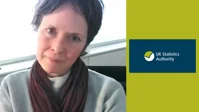
Prof Wendy Sigle appointed to National Statistician's Inclusive Data Advisory Committee
Prof Sigle joins a diverse group of senior academics and civil society leaders who collectively have wide ranging equalities expertise. The committee provide independent advice to the National Statistician. You can find out more here.
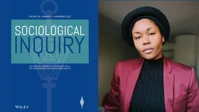
Dr SM Rodriguez published in The International Journal of Human Rights
Dr Rodriguez's article Respatialising the global imaginary of gay rights: resisting Africana epistemicide and forging Solidaristic Imaginaries is avaible to read here.
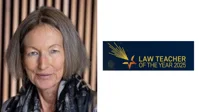
Professor Nicola Lacey wins Law Teacher of the Year
Congratulations to LSE Gender Advisory Board member Prof Nicola Lacey who has won Law Teacher of the Year. Professor Lacey was given the presitigious award by Oxford University Press, after being shortlisted earlier this year. Find out more here.

LSE Gender staff awarded the 2025 LSE Excellence in Eduaction Award
LSE Gender faculty and PSS staff have been awarded with the 2025 Excellence in Education Award.
Congratulations to our prize winners: Prof Clare Hemmings, Dr Asiya Islam, Dr. Zeynep Kilicoglu, Rob Kirkland, Dr Sharmila Parmanand, Catherine Perry, Dr Ania Plomien, Annie Robinson, Dr Hakan Sandal-Wilson and Dr Sadie Wearing
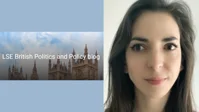
Dr Gloria Novović published on LSE British Politics and Policy blog
The Labour Government has confirmed that it will be going against its campaign promise by cutting foreign aid. Gloria Novović argues that the Government’s new framing of foreign aid as charity is a gross misrepresentation of the UK’s domestic and international commitments. You can read the full piece here.
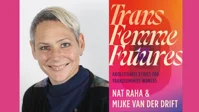
Prof Clare Hemmings reviews Transfemme Futures for LSE Blog
Trans Femme Futures: Abolitionist Ethics for Transfeminist Worlds by Nat Raha and Mijke van der Drift explores how transfeminist methods and practices can build futures that are more equal, free and inclusive for all. Clare Hemmings writes that the authors’ brilliant, nuanced embrace of community, care and modes of resistance offers radical ways of realising more liveable futures. Read the full review here.

Dr Rohit K Dasgupta elected Newham First Citizen
Dr Rohit K Dasgupta was elected at Newham Council’s annual general meeting.
It makes him “the first individual of Indian-Bengali origin and queer identified” to be elected chair and first citizen, a Newham Council spokesperson said.

Dr Alanah Mortlock awarded Leverhulme Early Career Fellowship
Visiting fellow and LSE Gender alumna Dr Alanah Mortlock has been awarded a Leverhulme Early Career Fellowship. Based at King's College London, Dr Mortlock will be working on a project entitled 'Black British feminist theoretical futures: a dialogue with US Black studies’ with Dr Yasmin Gunaratnam.
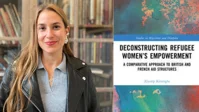
Dr Zeynep Kilicoglu publishes 'Deconstructing Refugee Women's Empowerment'
Dr Zeynep Kilicoglu, LSE Fellow in Gender and International Politics, has published her first book Deconstructing Refugee Women's Empowerment: A Comparative Approach to British and French Aid Structures.
In it, she explores how self-identified feminist or women’s asylum organisations in the United Kingdom and France address refugee women’s empowerment in their operations and how these perpetuate or disrupt global hierarchies.
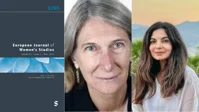
Prof Mary Evans and Prof Sumi Madhok edit special issue of European Journal of Women's Studies
The special issue is titled Conceptual Diversity and Anti Imperial Epistemic Justice. It is available here.
This special issue emerged from a 2021 workshop held at LSE Gender and co-created by Prof Mary Evans and Prof Sumi Madhok. It also foregrounds the work of early career scholars.
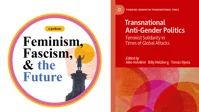
Dr Aiko Holvikivi and co-authors Dr Billy Holzberg and Dr Tomás Ojeda on Feminism, Fascism & the Future podcast
You can find the episode on their book Transnational Anti-Gender Politics: Feminism Solidarity in Times of Global Attacks here.
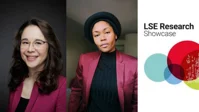

Dr Alanah Mortlock published in Feminist Theory
Dr Mortlock's article Trauma, escape and claims to black metaphysical space: Black feminist engagements with ‘transracialism’ is available here.
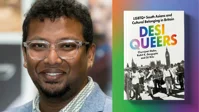
Dr Rohit Dasgupta's 'Desi Queers' featured in Research for the World magazine
You can read the article on Dr Rohit Dasgupta's recently published book 'Desi Queers' here.
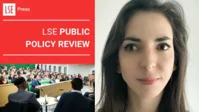
Dr Gloria Novović published in LSE Public Policy Review
Dr Novović's article Swimming Upstream: System-wide Constraints of Policy Relevant and Politically Engaged Feminist Research is availalbe to read here.

Students launch podcast 'Spilling The Equali-TEA'
Listen to the first episode titled 'Feminism 101' now on Apple Podcasts, Spotify, Podcast Index or Amazon Music.
You can follow the podcast on @equalitea.pod and find all episodes here.
Each podcast episode gives the views of the individual speaker(s), and not the position of the Department of Gender Studies, nor of LSE.

Prof Nicola Lacey shortlisted for Law Teacher of the Year 2025 Award
LSE Gender Advisory Committee member Prof Nicola Lacey is shortlisted for Oxford University Press' prestigious Law Teacher of the Year 2025 Award. You can find out more here and read an interview with Prof Lacey about the nomination here.
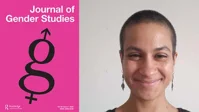
PhD alum and Visiting Fellow Dr Alia Amirali published in the Journal of Gender Studies
Alia's article, 'The ‘researcher’ versus the ‘political worker’: overlapping identities and their tensions in the field', is availalble to read here.

Dr Rohit K Dasgupta publishes 'Desi Queers'
'Desi Queers' is a landmark book on South Asian queer communities in Britain and how they have helped to shape LGBTQ+ movements since the 1970, written by Prof Churnjeet Mahn, Dr Rohit K Dasgupta and DJ Ritu.
The book reveals how diasporic South Asians have shaped LGBTQ+ movements and communities in Britain, from the 1970s to the present day. Weaving the history of 1980s anti-racism with the emergence of Black LGBTQ+ and feminist coalitions, this book highlights landmark moments in British queer life and culture through South Asian lives, and illuminates British histories of colour through qu
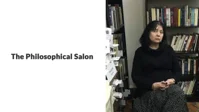
Prof Irina Zherebkina published on The Philosophical Salon
On the third anniversary of Russia's invasion of Ukraine, Researcher at Risk Fellow Prof Irina Zhrebebkina reflects on affectve solidarity and Ukrainian feminism in times of war. You can read the full piece here. This piece has also been translated into Korean, and is availbe to read here.
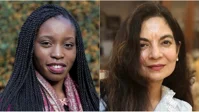
Q&A with Dr Imaobong Umoren and Prof Sumi Madhok on transdisciplinary and transnational research
Imaobong Umoren (LSE International History) and Sumi Madhok (LSE Gender Studies) are two of the editors of the International Studies Book Series published by Cambridge University Press in association with LSE. In this interview with Anna D’Alton, they discuss the aim of the series, why transdisciplinary and transnational research matters and books to look out for in 2025.
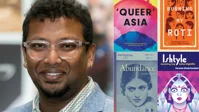
Dr Rohit K Dasgupta shares ten queer South Asian reads
In this reading list for LGBTQ+ History Month 2025, Rohit shares a selection of 10 recent books exploring LGBTQ+ culture, politics and history in South Asia that have motivated and inspired his research. Dive into queer South Asian life and writing here.

Dr Rohit K Dasgupta quoted on BBC news sites
The BBC has reached out to Dr Dasgupta for comment on US President Trump's executive order regarding a new federal definition definition of the sexes. The definition only recognises two sexes, male and female. Dr Dasgupta comments:
“I spoke with many queer and trans rights advocates in India, where I work. They shared their concerns that such policies rarely remain confined within U.S. borders. This rollback could disproportionately affect the most vulnerable groups, such as trans people of colour.”
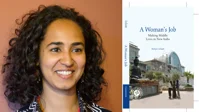
Read an excerpt from Dr. Asiya Islam's new book A Woman's Job: Making Middle Lives in New India
LSE Review of Books has published an exclusive excerpt from A Woman's Job: Making Middle Lives in India, written by Dr Asiya Islam. In it, Dr Islam examines the lives of educated young women working in precarious jobs in Delhi’s service sector. The book’s rich ethnography explores how these women navigate work, home life, gender norms and class dynamics amidst socio-economic transformation and globalisation.
You can now read the excerpt here.
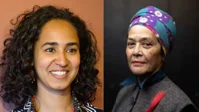
Dr Asiya Islam in conversation with Françoise Vergès
Dr Asiya Islam discusses the relationship between class, race, gender and waste with Françoise Vergès in the newest issue of The Sociological Review. You can find the conversation here.
Dr Islam has also edited this issue, and you can find her introduction to the topic 'Waste' here.

Dr Rohit K Dasgupta (as PI) awarded UKRI grant worth up to £300,000 for a period of thirty-six months
The research project is called Crafting Sustainability and Equitability
The partners are Dr Nazli Alimenat Birmingham City Uni,Dr Diviani Chaudhuriat Shiv Nadar University in Delhi and Vishnupriya Narayananat National Institute of Design in Ahmedabad.
This research concentrates on an essential part of India’s creative economy: the traditional handicrafts sector. It will examine sustainability and sustainable practices related to environment and labour in traditional handicrafts and textiles with an aim to address inequalities from an intersectional perspective and to evaluate how and to what extent traditional practices can be embedded into the creative economy to ensure long-term environmentally and culturally sustainable and socially equitable development.
The project will use an ethnographically led mixed methods approach, employing interviews, surveys, and observations. It will involve a non-extractive, ethical and reciprocal process among diverse groups, thus addressing the current and future state of the creative economy from diverse viewpoints.
This work also builds on Dr Dasgupta’s previous work gender, cultural production and South Asian Diasporic identity.
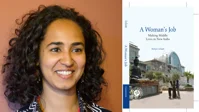
Dr Asiya Islam's 'A Woman's Job: Making Middle Lives in New India' coming in 2025
This new bookexplores the place and politics of women’s workforce participation in discourses of development, modernisation, and globalisation through the everyday lives of young women workers in urban India.
We are hosting the celebratory launch of 'A Woman's Job' on 29 January 2025. Book your free ticket here.
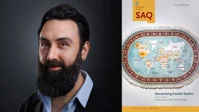
Dr Hakan Sandal-Wilson published in South Atlantic Quarterly
Read Dr Sandal-Wilson's article On the (Im)possibility of the Kurdish Queerhere.
Adopting the doubly illegitimized subject position of the "Kurdish queer" as its point of departure, this article highlights the importance of taking the situated knowledge and political analyses of Kurdish queers seriously to uncover histories of violence as well as the multiple layers of queer, postcolonial, and decolonial imagination. An investment in Kurdish queer studies is needed to complicate our understanding of the history and politics of the region, as well as how sexuality and conflict are entangled.
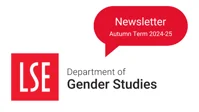
Read the Department's latest public newsletter!
Welcome to the LSE Department of Gender Studies' termly public newsletter! In it, you can find the latest selection of recent and upcoming events, research, and news all around LSE Gender.
Click hereto read the Autumn Term 2024-25 public newsletter.
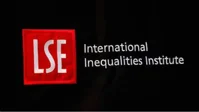
Dr Ania Plomien published with Professor Naila Kabeer on 'Placing gender justice at the heart of the wellbeing economy'in LSE Inequalities.
The neoliberal model takes GDP growth as the key indicator for societal prosperity. Against this narrow measure, several more equitable and more sustainable alternatives have been suggested. But why place gender justice at the heart of a new paradigm for human and planetary wellbeing?
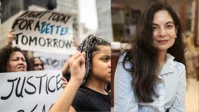
Professor Sumi Madhok to deliver lecture on 'Anti-Imperial Epistemic Justice' as part of the British Academy's flagship lecture programme.
Delivered by the most outstanding academics in the UK and beyond, the British Academy’s flagship Lecture programme showcases the very best scholarship in the humanities and social sciences.
This lecture will introduce the concept of 'anti-imperial epistemic justice', an essential framework for understanding the politics of rights and human rights in the majority of societies worldwide.
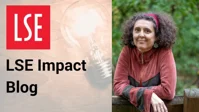
LSE Impact blog published from department's
Reflecting on the challenges facing gender activists and researchers in Hungary, Dorottya Rédai outlines how interactions between researchers and activists could be more productive and why taking a transnational perspective is increasingly important.
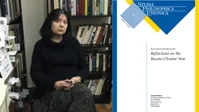
Visiting Fellow Irina Zherebkinapublished in the new special issue of Studia Philosophica Estonica 'Reflections on the Russia-Ukraine War'.
Irina's article 'The Antinomies of the Russia-Ukraine War and Its Challenges to Feminist Theory' analyzes responses to Russia’s full-scale invasion of Ukraine by philosophers on the left, like Balibar and Zizek, and feminist philosophers, such as Butler and Hark. Read the article here.

Professor Clare Hemmings awarded Chaire Internationale 2024 du GIS Institute du Genre for the project 'Reciting Radical and Materialist Feminist Histories'
The project is part of her new work on Feminist Knowledge Struggles: Telling Stories Differently. As Chaire genre, Professor Hemmings will be resident at Paris 8 and Paris Nanterre this autumn. Find out more .
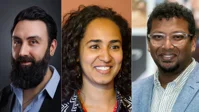
Dr Rohit K Dasgupta, Dr Asiya Islam and Dr Hakan Sandal-Wilson join the Department of Gender Studies
We are excited to welcome our new members of faculty to the department. Dr Rohit K Dasgupta joins as Associate Professor of Gender and Sexuality, Dr Asiya Islam as Assistant Professor in Gender, Development and Globilisation, and Dr Hakan Sandal-Wilson as Assistant Professor in Gender, Peace and Security.
